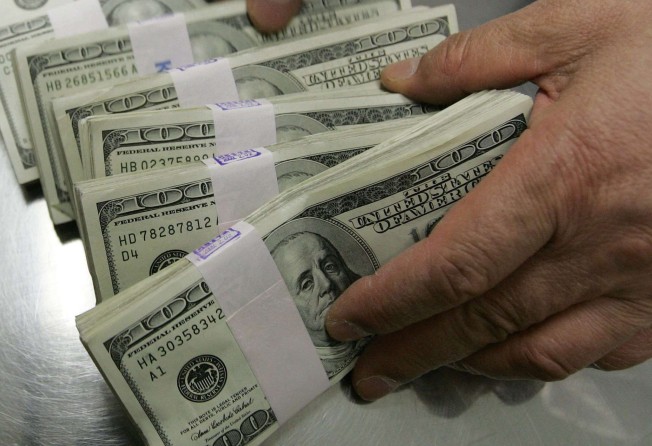
Dollar logs worst January in 30 years after Trump slams China, Japan over currencies
The ICE dollar index down 2.6 per cent for January

A key US dollar index hovered at its lowest level in more than two months on Wednesday and posted its worst January performance in three decades after US President Donald Trump and his trade adviser hit out at China, Japan and Germany over currency devaluation to gain a trade advantage over the US.
The ICE dollar index, a measure of the greenback’s strength against six rival currencies, traded at 99.795 on Wednesday afternoon after touching a low of 99.603 in the morning. It was the lowest level for the index since November 11.
For January, the index shed 2.6 per cent, the worst performance for the first month of the year since 1987, when it declined 3.6 per cent, according to Bloomberg data.
Trump on Tuesday criticised Japan and China for devaluing their currencies in a meeting with pharmaceutical executives. His top trade adviser, Peter Navarro, who heads the new US National Trade Council, also accused Germany of using a “grossly undervalued” euro to gain an advantage over its main trade partners, according to a report by the Financial Times.
Trump had signalled he preferred a weak dollar, said Tim Condon, an analyst for ING Asia.
“We expect the US to start playing the devaluation game and its trade negotiators to cite large bilateral trade surpluses with the US as grounds for China, Japan and [South] Korea to appreciate their currencies,” he said.
Against the euro, the dollar dropped 0.7 per cent since the end of last week to 1.0779.
The greenback also fell heavily against the offshore Chinese yuan. It bought 6.8358 yuan on Wednesday afternoon in the offshore market, down 0.5 per cent from late Friday.
As the Federal Reserve is set to conclude its two-day meeting on Wednesday, investors will watch carefully what is coming on the central bank’s path to tightening.
However, Michala Marcussen and Klaus Baader, analysts from Societe Generale, do not expect to see signals of future rate increases in the Fed’s statement as they will have to watch details of Trump’s fiscal plans.
“We don’t expect a firm signal on the timing of the next rate rise. Instead, we look for a neutral stance and a wait-and-see approach,” they said in a research report on Wednesday.
“We understand it is too soon for the Fed to know what fiscal policies will be implemented and how they will affect growth, so it is again too early to lay out exactly how monetary policy will react.”